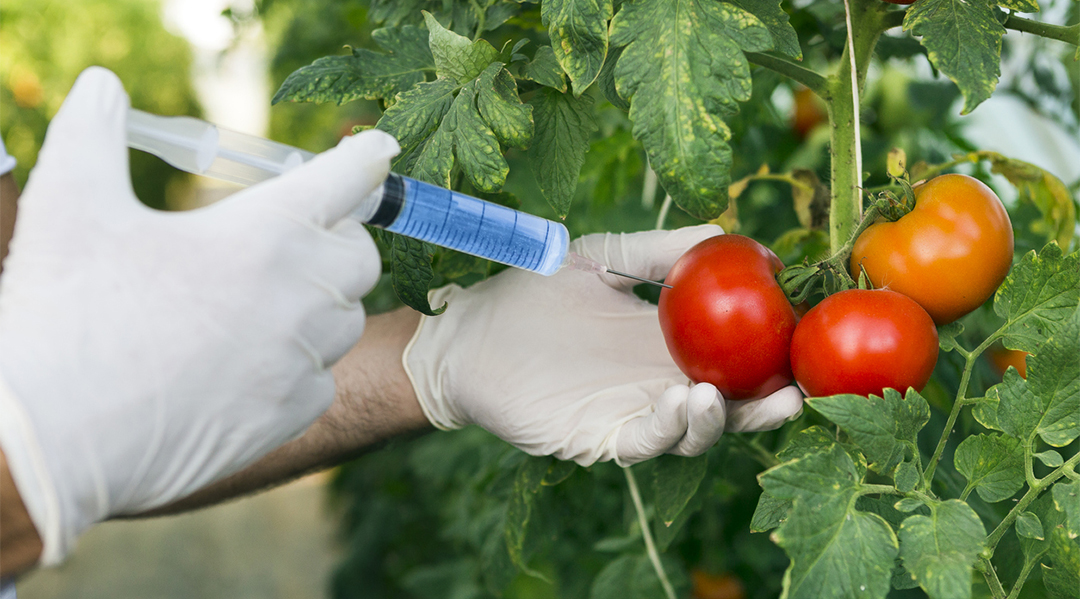Quantitative Real-Time PCR Testing for GMO Content
Quantitative Real-Time Polymerase Chain Reaction (qPCR) testing is a cornerstone technique in the analysis of genetically modified organisms (GMOs). This method allows for precise quantification and detection of specific DNA sequences, which makes it an indispensable tool in agriculture, food safety, and environmental monitoring. The process involves amplifying target DNA strands from GMO samples using primers that are complementary to the genetic material being tested.
The significance of qPCR testing lies in its ability to detect even minute amounts of GMO contamination. This is particularly crucial for quality managers and compliance officers who need to ensure product integrity and regulatory compliance. For R&D engineers, this service provides a means to explore novel applications of biotechnology and develop safer food products. Procurement teams can leverage these results to verify the authenticity of raw materials.
The qPCR process begins with sample preparation, which involves extracting DNA from plant or animal samples. This step is critical as it ensures that only target genetic material is used in subsequent amplification. The extracted DNA is then subjected to a series of cycles where DNA strands are denatured, annealed, and extended by polymerase enzymes. Each cycle doubles the number of copies of the target sequence, allowing for exponential growth.
The real-time aspect of qPCR involves monitoring fluorescence intensity during these amplification steps. This allows for continuous observation of the reaction process, which is then used to calculate the starting concentration of the target DNA. The method's sensitivity and specificity make it ideal for detecting GMOs at levels as low as 0.1% in complex matrices.
Standard operating procedures (SOPs) for qPCR testing are governed by international standards such as ISO 21576-4:2019, which provide detailed guidelines on sample preparation and data interpretation. Compliance with these standards ensures accurate and reliable results that meet regulatory requirements.
| Industry Applications | |
|---|---|
| Agriculture: | Detection of unauthorized GMOs in crops |
| Food Safety: | Verification of food labels and origin claims |
| Environmental Monitoring: | Tracking the spread of genetically modified organisms |
- Agricultural biotechnology companies use qPCR to ensure their products comply with global regulations.
- Food manufacturers rely on this method to maintain product integrity and consumer trust.
- Regulatory bodies employ qPCR for auditing and enforcement of GMO labeling laws.
In conclusion, quantitative real-time PCR testing is a vital tool in the agricultural sector. Its ability to provide precise quantification and reliable results makes it an essential part of quality control processes. By adhering to international standards, laboratories like Eurolab ensure that their testing services meet the highest industry expectations.
Why It Matters
The importance of qPCR testing in GMO content analysis cannot be overstated. In agriculture, ensuring compliance with genetically modified crop regulations is essential for maintaining market access and consumer trust. For food safety, accurate detection of GMOs helps avoid legal disputes over product labeling and ensures the health and safety of consumers.
Environmental monitoring benefits greatly from qPCR testing as it can track the spread of GMOs into wild populations or non-target environments. This information is crucial for managing ecological impacts and preventing unintended genetic pollution.
For quality managers, compliance officers, R&D engineers, and procurement teams, accurate GMO content analysis provides critical data that informs decision-making processes. It allows them to meet regulatory requirements, protect brand reputation, and innovate in product development.
Industry Applications
| Industry | Application |
|---|---|
| Agriculture | Detection of unauthorized GMOs in crops |
| Food Safety | Verification of food labels and origin claims |
| Environmental Monitoring | Tracking the spread of genetically modified organisms |
- Agricultural biotechnology companies use qPCR to ensure their products comply with global regulations.
- Food manufacturers rely on this method to maintain product integrity and consumer trust.
- Regulatory bodies employ qPCR for auditing and enforcement of GMO labeling laws.
- Biopharmaceutical firms utilize the technique to verify the genetic consistency of bioengineered pharmaceuticals.
The versatility of qPCR testing extends beyond these primary applications, making it a valuable tool across multiple sectors. Its precision and reliability make it indispensable for ensuring product safety and compliance with international standards.
Eurolab Advantages
At Eurolab, we pride ourselves on providing world-class GMO content analysis services using quantitative real-time PCR technology. Our team of experts is dedicated to delivering accurate, reliable results that meet the highest industry standards. We use state-of-the-art instrumentation and follow rigorous protocols outlined in international standards such as ISO 21576-4:2019.
Our commitment to quality is further reinforced by our adherence to strict calibration procedures and regular internal audits. This ensures consistent performance across all samples, regardless of complexity or variability. Eurolab's expertise extends beyond just testing; we offer comprehensive analytical services that support your entire product lifecycle from development to market launch.
With a network of certified laboratories worldwide, Eurolab is uniquely positioned to provide localized support and rapid turnaround times for our clients. Our global presence allows us to cater to the diverse needs of businesses operating in various regions, ensuring they have access to the most relevant and accurate testing services.





